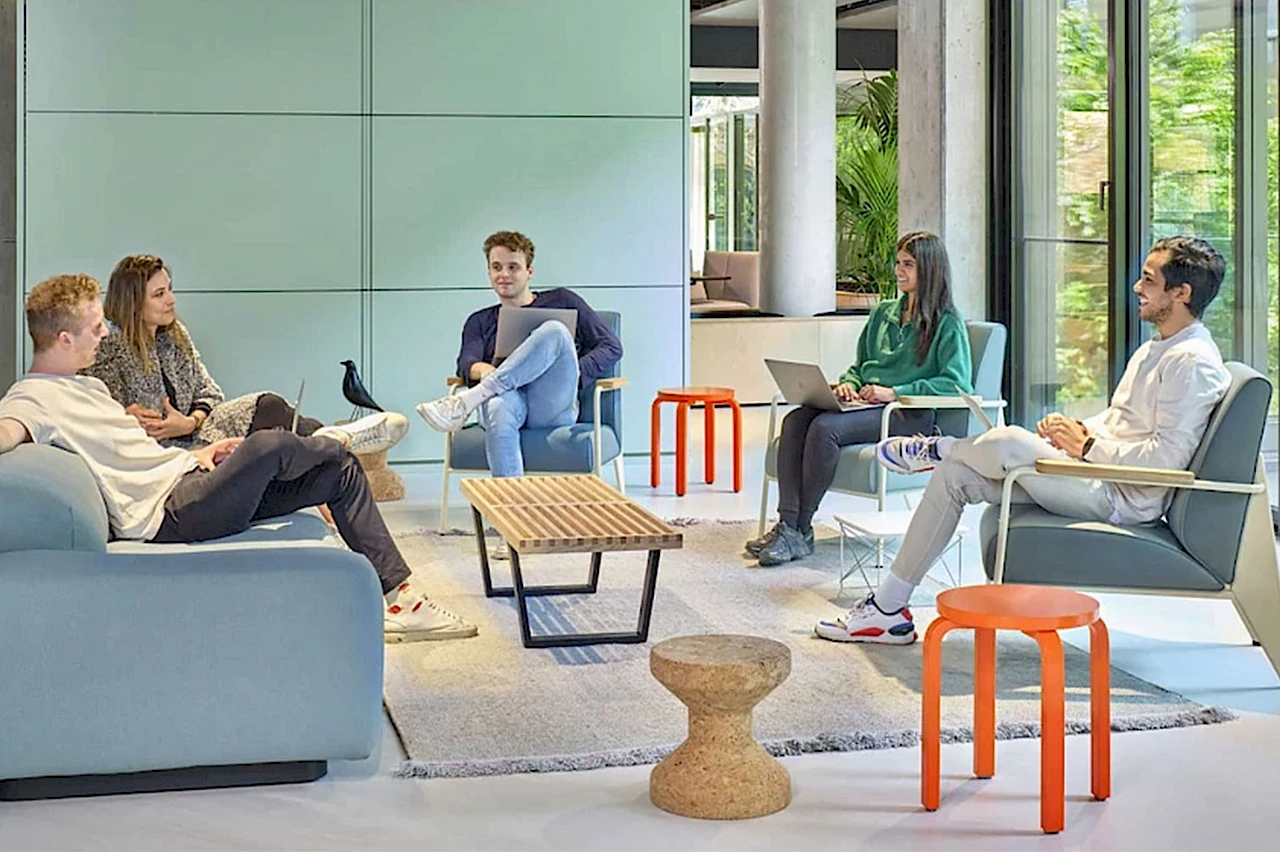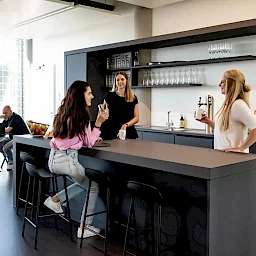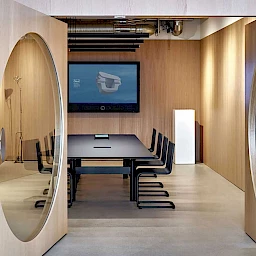The home office and hybrid working have established themselves in our world of work and will be an integral part of the future. Flexible forms of work are no longer a bonus, but are actively demanded by employees. According to studies, they want to spend 30 – 60 % of their working time at home. This also implies that the office will be used differently in the future. Exchange and communication are the main focus.
How exactly are employees and employers facing these changes? And how far have their plans progressed in the companies?
Home office option is a must for employees
Viewed from the employee’s perspective, the situation is clear. Working from home offers obvious advantages: There is no need to travel to work, the amount of free time increases and individual work can be easily organised in the home environment. Nevertheless, according to a survey conducted by the research and consulting institute Great Place to Work in cooperation with the IHK Südlicher Oberrhein, hardly any employees would like to spend their time exclusively working from home or only in the office (11% each). Yet the personal situation has a great influence on how often the respondents want to come to the office. While 18 to 25 year-olds tend to spend more time in the office within hybrid work models, 26 to 34 year-olds and those over 55 tend more towards the opposite scenario. For them, personal flexibility is more important or they can do without an increased physical presence because aspects such as feedback and networking are no longer as important.
Different options offered by companies
The majority of employers also agree with at least a part-time working from home arrangement. Currently, two-thirds of companies in Germany allow working from home, many with individual solutions. A survey conducted by Handelsblatt in February 2023 shows that a majority of the 40 Dax corporations and ten large family-owned companies, including Jungheinrich, Adidas, Henkel and Siemens, for example, allow their employees to work from home for two to three days. Employers such as Covestro and Volkswagen allow up to four days, Mercedes-Benz even five. “Today, mobile working is part of the new normal,” a spokesperson for Siemens Healthineers tells the WELT. The situation is similar at other Dax companies, where offices are rarely fully staffed. A survey by WELT from January 2023 shows that rarely more than two-thirds of employees work on site. Overall, according to the Ifo Institute for Economic Research, an average of 25 % of employees in Germany currently work partly from home.
In relation to the workplaces that remain unused as a result, the companies surveyed derive different strategies. Many companies are currently realising potential savings in energy consumption. At Siemens Healthineers, for example, some offices were closed during the winter in order to deal with the energy crisis, and lighting and temperature were reduced. Some companies are cutting back on office space altogether, as the Handelsblatt survey shows. The need for space has fallen by about 20 % due to working from home, companies like Siemens, Bayer and Deutsche Telekom are planning with correspondingly less office space in the future. Deutsche Bank also wants to reduce its office space significantly, but design the remaining space in a more attractive and modern way: “Our goal is to concentrate on a few buildings, but in return to equip them with a higher standard and especially to focus on collaborative work. For example, the share of common areas for collaboration shall be increased from currently 15 to 50 % of the office space. Bayer is also counting on new office concepts to support new ways of working and thus also “provide additional motivation to come to the office regularly”, a spokesperson told the WELT.
Ultimately, in very few companies is it just a matter of reducing space. In many cases, offices are being adapted to the needs of a flexible world of work – at 14 of the 40 Dax companies, including Covestro, Symrise and Vonovia, space is not even to be reduced. The chip manufacturer Infineon has even expanded its office space and Deichmann is also planning to expand its offices.
92 % of the executives surveyed by an Allensbach study said that the design of office space will change. Instead of individual offices, more collaborative areas and conference rooms are being set up, and new concepts such as cafés and coworking areas that promote creative exchange are also currently being tested.
Individual solutions for the future
It will not be possible to standardise the approach to flexible working even within companies. A spokesperson for Mercedes-Benz is also convinced of this: “There will not be a central announcement in the sense of ‘Come back in everyone’ or vice versa ‘Work mobile everyone’. The work requirements of different functional areas and the expectations of employees are too different for that. What is certain, however, is that direct exchange has by no means lost its importance due to the option of working from home. This is also emphasised by Otto HR Director Petra Scharner-Wolff: “We will not become a one hundred percent remote organisation because we believe in the power of encounter”. Exactly how to deal with office space and special arrangements for working from home must be defined and adapted by companies and employees in the coming years – ideally in a joint effort.






